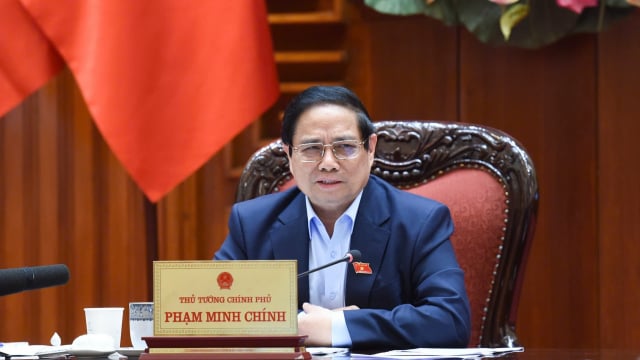According to Dragon Capital, the issuance of bonds this time is considered a necessary measure to moderate exchange rate fluctuations, rather than indicating a shift in monetary policy.
During the trading sessions on March 11 and 12, the State Bank of Vietnam reissued bonds totaling VND30,000 trillion, with a 28-day term and an interest rate of 1.4 per cent.
Dragon Capital's research department views this bond issuance as a necessary step to manage exchange rate volatility, rather than a change in monetary policy.
Since the beginning of the year, the Vietnamese dong has depreciated by 1.6 per cent, a modest decline compared to other regional currencies such as the Japanese yen (-4.3 per cent), Thai baht (-3.3 per cent), South Korean won (-2.2 per cent) or Taiwan dollar (-2.8 per cent).
Factors such as remittances, FDI disbursements, and trade surplus continue to support the Vietnamese dong.
However, in recent weeks, the USD exchange rate in the black market has experienced continuous fluctuations, reaching 25,750 VND/USD, while the price of gold has surged to over VND82 million per tael.
These developments have spurred demand for USD in the black market, resulting in a nearly 4 per cent spread between the exchange rates in the black market and the interbank market.
In response, the official VND/USD exchange rate is poised to rise in the event of capital outflows, particularly with positive signs of recovery in import-export activities.
Therefore, the purpose of issuing bonds is to absorb excess liquidity and alleviate short-term exchange rate speculation pressure.
Dragon Capital believes that Vietnam's long-term monetary policy remains accommodative, with a focus on reducing interest rates for business loans to stimulate economic growth.
Even after last year's bond issuance to absorb liquidity, interest rates continue to decline and banking system liquidity remains ample.
On the global stage, the Fed is anticipated to be nearing a decision to cut interest rates in the latter half of the year, while Japan's monetary policy tightening after several years may weaken the USD.
This would relieve pressure on the exchange rate and provide Vietnam with leeway to maintain its accommodative monetary policy.
Echoing Dragon Capital's perspective, the analysis team at KBSV Securities believes that the State Bank has sufficient tools to simultaneously sustain loose monetary policy and manage the exchange rate.
KBSV forecasts a modest 1.5 per cent increase in the exchange rate this year, reaching 24,600 VND per USD.
Exchange rate stability will be upheld by a favorable overall balance of payments, despite persistent pressure from the negative interest rate differential between USD and VND.
KBSV's report evaluates brighter prospects for the domestic economy and a mild recovery in the real estate market, accompanied by a rebound in imports.
The deficit in services import and export is expected to narrow due to the tourism sector's recovery, especially with Chinese tourists, stable FDI inflows and remittances.
The Fed's anticipated interest rate cuts next year, coupled with stable growth in FDI inflows and remittances, will propel capital inflows into Vietnam, providing stable foreign exchange reserves for 2024.







































